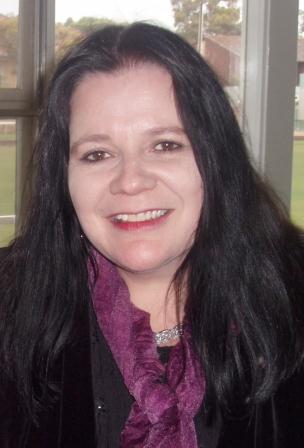1. What inspired you to write the prose poem/microfiction which is published in Stoned Crows & other Australian icons?
For over a decade, I caught public transport to Adelaide’s CBD every working day. I don’t read; I’m not plugged into a pod or gadget. I like to people-watch, and that includes bus drivers, of whom I have witnessed the good, the bad and the dastardly. I thought it time to recognize these iconic ‘modern people herders’ so wrote the poem included in Stoned Crows.
2. Tell us about your process. (Do you start sparse and widen out, or do you write down every possible association and cut back? Do you research the subject matter you are writing about? Is it pure intuition?) Take us through an example if you want.
For this poem, and with many others, I began with a few lines in my notebook, jotted down on the bus and in a hurry. Then when I had some rare spare time, I looked through my notebook and extended the poem. When it filled the page, with lots of crossings-out and arrows, it was time to type it onto my computer. From there it underwent around a dozen edits, each time pruning more than adding. I don’t print out every draft. I usually have a crop of about a dozen poems I’m writing, so when I’m editing, I graze over them all, only printing when I think I’ve reached the final draft … Ha! That final draft can actually be months, years down the track.
3. What advice do you have for other writers ? about the first or last line? About how to choose the title? Do you follow any rules?
Here is the list of tips I give my creative writing students at TAFE:
Jude’s Top Ten Tips:
1. Enjoy: Writing is meant to be enjoyable, never viewed as a chore. Be playful and experimental. Writing a story or poem is like nutting out a crossword puzzle and just as satisfying when you feel you have got it right.
2. Store your ideas: Keep notebooks, or scraps of paper used at the time of inspiration. This is your idea pool. Artists sketch, poets note.
3. Read widely: Explore all types of books. A good book will give you ideas. You don’t even have to read it fully, just flip through and take notes.
4. Stop. Sit. Listen: Resist the pressures of modern life now and then. Allow yourself time in an interruption-free place.
5. Use all your senses: The inclusion of sounds smells, tastes or unusual textures will enrich any piece of writing.
6. Show but do not tell: Writing should never preach. Good poetry allows the readers space to think and come to their own conclusions.
7. Be original, be strange: Do not self-censor. Explore all thoughts. Forget what anyone else says.
8. Edit. Edit. Edit: It is common for poems and stories to go through more than 10 drafts. A gap in time between the first and final draft of a piece is essential. It allows you to stand apart from your work and see it afresh.
9. Share your writing: Learn from the mistakes of others. Join a writers’ group to increase your editing skills and to receive valuable feedback.
10. Just do it: You can think about it all you like, but unless you actually write and finish pieces, you will have achieved little. You will be surprised how much easier it becomes the more you write.
4. Who or what inspires your writing?
I am inspired by contemporary women poets with zing and pluck, such as Lorna Crozier (Canada), Sharon Olds (US), Dorothy Porter (Australia) and Louise Nicholas (Australia).
5. Tell us what you do if you haven’t written anything in a while and you want to get started writing again? Could you share your favourite writing exercise with our readers?
I like to write the first lines for around 10 poems at the top of each page in a spiral bound notebook. Then later, I come back and add something to those lines. Then I tear the page down the spiral a little way and fold it back, so I can only see the last line I wrote. I wait of a while then come back and add to those lines, then fold the page back again, and so on, until I reach the bottom of the page. I then unfold the poem and read it. This method seems to take poems to different/strange places (because I can’t remember how the poem started). Of course, then the editing process begins, which I find equally exciting.
Jude Aquilina has published four collections of poetry, including Knifing the Ice and WomanSpeak. She lives on a walnut farm in the Adelaide Hills and teaches creative writing at TAFE.

